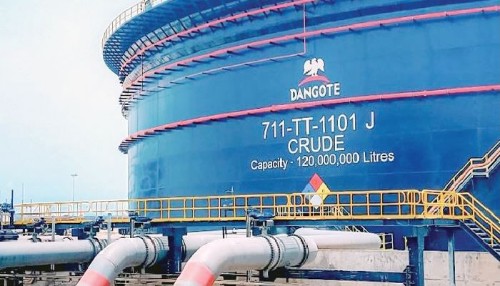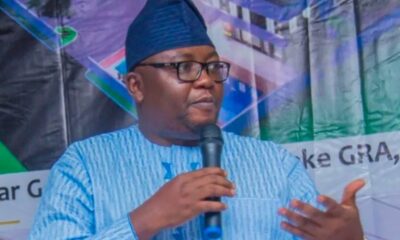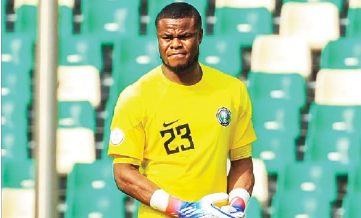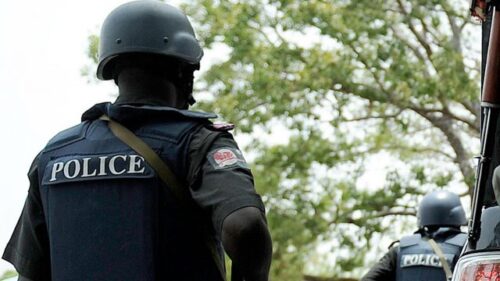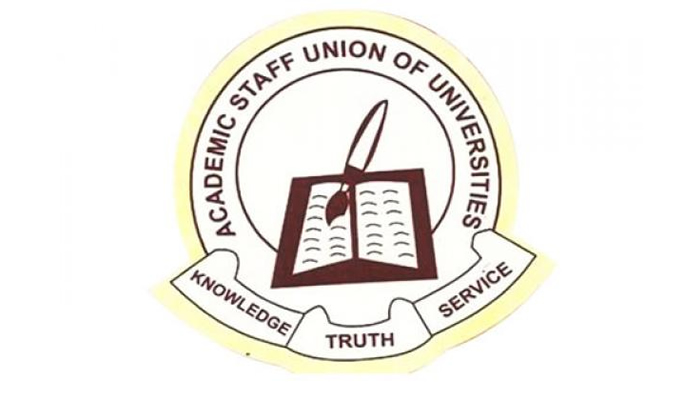Four days before the September 15, 2024, date announced by the Nigerian National Petroleum Company Limited (NNPCL) to start lifting Premium Motor Spirit, popularly called petrol, from the Dangote Refinery, investigations by The Punch show that no commercial agreement has been reached to that effect by both parties.
Multiple sources from NNPC and Dangote confirmed on Tuesday that the two oil firms had yet to reach a deal on the quantity and pricing of PMS to be lifted by the national oil company.
On September 5, 2024, the Executive Vice President of Downstream, NNPC, Adedapo Segun, said during a live television programme that the company would lift Dangote petrol on September 15.
He also outlined factors that would determine the price of the commodity, as he stated that foreign exchange rates and market forces would influence the cost of petrol, stressing that the market had been deregulated.
But on Tuesday, government sources close to the development revealed that no paperwork had been signed by both parties for the lifting of petrol from the $20bn Dangote refinery by NNPC from September 15.
They stated that the terms and conditions required for the deal had not been agreed on, stressing that the national oil company may not lift any petrol from Dangote on the announced date.
When told that September 15, 2024, is around the corner and asked whether plans had been concluded for NNPC to lift Dangote petrol from that day, a senior official at Dangote refinery, who spoke to one of our correspondents in confidence due to lack of authorisation to speak on the matter, said nothing had been agreed on pricing, and petrol lifting, among other things.
“Right now, no documentation from NNPC and NMDPRA (Nigerian Midstream and Downstream Petroleum Regulatory Authority) on product lifting. Nobody has spoken to us that they want to pick up PMS on September 15.
“For you to come and pick products in five days there must be discussions on pricing and other things, which is the commercial engagement. Of course, there must be an offer and other things, the lawyers will structure the terms and conditions,” the source stated.
On how PMS lifting from the Dangote refinery could be, the official replied, “It will be through the same way that products are imported and put in terminals before being lifted by marketers for distribution across the country.”
Another official at the Federal Minister of Petroleum Resources, corroborated the position of the Dangote source, stating that “nothing concrete has been agreed on right now in terms of petrol lifting, but I believe the process is still ongoing.”
A seasoned business adviser to several companies in the upstream, midstream, and downstream oil and gas sectors in Nigeria, Mr Dan Kunle, urged President Bola Tinubu to intervene in the matter.
“The President must act now to address the concerns caused by the issues surrounding the supply of petrol and how this has been fueling the socioeconomic crisis across the country,” he advised.
The spokesperson for the NNPC, Olufemi Soneye, had yet to respond to enquiries on the matter up till when this report was filed on Tuesday night.
Also on Tuesday, the Crude Oil Refiners Association of Nigeria said the Dangote refinery petrol might be cheaper if it gets the necessary concessions from the Federal Government.
CORAN’s comment is coming amid fears that the Dangote petrol may be more expensive when released into the market.
The refinery has yet to roll out its petrol a week after it was unveiled by the President of the Dangote Group, Aliko Dangote.
Marketers had expressed fears that the product from the Dangote refinery may be as high as N1,000/litre considering the current landing cost of petrol.
However, speaking in an interview with our correspondent on Tuesday, CORAN Publicity Secretary, Eche Idoko, disclosed that there is no way Dangote’s PMS will be more expensive if the government fulfils its promises.
While saying he was not in a position to determine the price, he stated, “There’s no way his fuel will be too expensive if all the other concessions the government has arranged come to bear. So, if those come to bear, definitely his prices will be cheaper.
“The only thing that will make his products more expensive is if he gets the crude on a higher term. That was all we were crying out for the first time. We must have a special pricing arrangement for local refining like it’s done in other places,” he suggested.
The CORAN spokesman advocated that the committee set up by the Federal Government on naira crude sale to local refineries should come up with a report, while the Nigerian Midstream and Downstream Petroleum Regulatory Authority will guide on prices.
He also requested, “For those of us who are local refiners, we must be able to create a special pricing arrangement for both feedstock and the refined product that will satisfy the Nigerian people.”
The position of the association, he said, is to make sure members break even in business while producing the quality specification that best serves Nigerians and delivering it at a reasonable price that will satisfy Nigerians.
He said the group was planning to meet with Dangote on pricing.
“By the time we interact with Dangote on his pricing arrangement, we will be able to address him where we deem it necessary and then we will also come out and publicly address the press on that. At this instance, we are yet to do that,” he said.
On the back and forth between the Dangote refinery and the Nigerian National Petroleum Company Limited, Idoko said refiners were not surprised.
“We are not surprised at what is happening. Usually, when there is going to be a market shift, the incumbents are bound to react,” he noted.
He stressed that discussions are still ongoing and there is nothing concrete yet.
“Because there is nothing concrete and everything is still based on speculations and bickering from both Dangote and NNPC, we don’t want to take a position until the negotiations are completed, especially with the committee set up by the Federal Government to see to the supply of crude in naira is completed and we are properly briefed, then we can give a position.
“But, by way of summary, our position ultimately will be what would be in the interest of, first, the Nigerian people, and then secondly, we would also throw our weight behind people who are seeking to invest in our economy. Those are the two paramount things.
“We always keep telling the government and telling anybody who cares to listen, that the decisions that have to be reached on local refining shouldn’t be done from the lens of one man alone. Dangote means just one out of many of us.
“So, we want the decision of the government to be palatable to even new entrants. So, in this instance, we want to tell the government to actually look at the broader picture of things and not say, ‘We are doing this because of Dangote’. We are doing it because of new entrants that are coming tomorrow,” he stressed.
According to him, refining locally has its advantage over importing products.
“As Nigerians, we also expect that in the overall pricing, Dangote is going to be circumspect and would look at the interest and purchasing power of Nigerians. Even though we know he’s in the business for gain, we do expect, as the person that he is, that he’s going to look at the interest of Nigerians in arriving at a price.
“We also want to advise NNPC to be very transparent about it and it’s not the time for politics because people are really suffering,” Idoko mentioned.
On the condition of the NNPC that it would only pick Dangote PMS if it is cheaper, Idoko maintained that the intervention of the Federal Government is still being awaited.
“I know if Dangote gets a special arrangement, they will also sell under that special arrangement for that quantity they are going to be refining. So, a lot is still going on right now. And then as an umbrella association, we don’t want to make any statement until we have seen the actual facts.
“But I think whatever you are seeing in the press is the normal thing that happens between the two parties trying to buy. So everything is done to give you a negotiating advantage. And in this case, playing to the people’s sentiments is key.
“But when it comes to pricing, I know that some compromise will be reached sometime, but our position is that whatever the compromise is, it should be in the overriding interest of Nigeria and Nigerians.
“Dangote has not briefed us nor has the committee set up by the Federal Government reverted to us on what had been agreed. We have told them what our intentions are and we have told them what our expectations are and I think Nigerians should just wait patiently for this to be agreed,” he said.
Credit: The Punch

 BIG STORY1 day ago
BIG STORY1 day ago
 BIG STORY1 day ago
BIG STORY1 day ago
 BIG STORY3 days ago
BIG STORY3 days ago
 BIG STORY5 days ago
BIG STORY5 days ago
 BIG STORY23 hours ago
BIG STORY23 hours ago
 BIG STORY3 days ago
BIG STORY3 days ago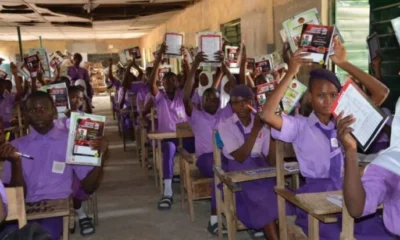
 BIG STORY21 hours ago
BIG STORY21 hours ago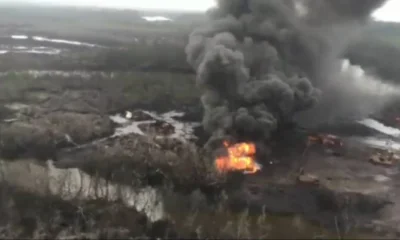
 BIG STORY3 days ago
BIG STORY3 days ago




